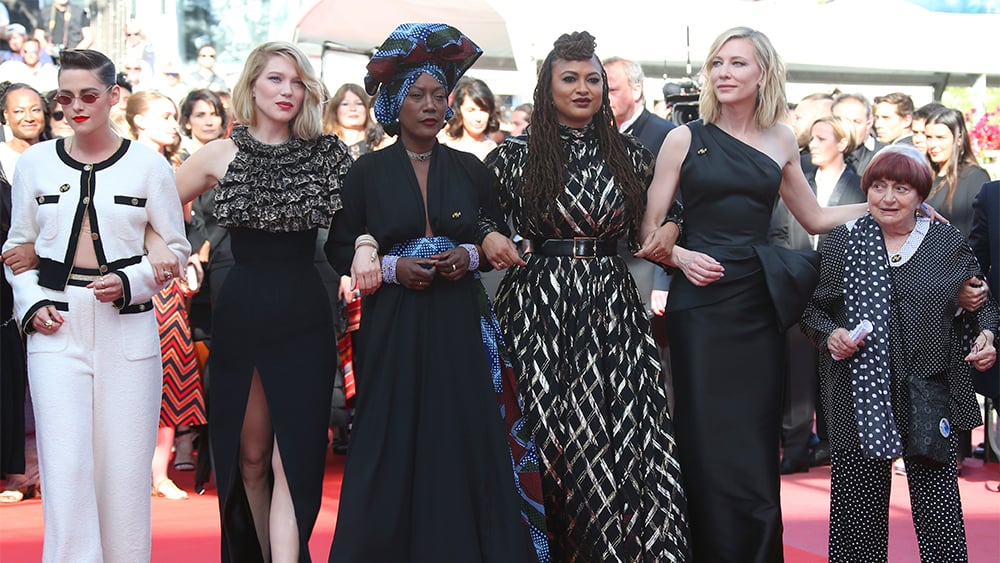It’s beyond distressing how women directors continue to get short shrift at Cannes.
How could it be that this year only three movies helmed by females will be contenders in the main competition of the world’s most prestigious film festival?
It’s horribly disappointing, but far from shocking, given that last year only four out of 21 competition titles were directed by females and considering Cannes’ poor track record when it comes to recognizing women filmmakers competing throughout its 75-year history. After all, just two movies by women directors, Jane Campion’s “The Piano” and Julia Ducournau’s “Titane,” have ever won the coveted Palme d’Or.
Of course, I’m thrilled for director Kelly Reichardt (“Showing Up”), Valeria Bruni Tedeschi (“Forever Young”) and Claire Denis (“Stars at Noon”), but nonetheless their movies represent a meager portion of the 18 titles in competition at Cannes.
That’s pathetic, especially considering that in 2018, Cannes became the first international film festival to sign a gender parity pledge two days after 82 women, including Cannes jury president Cate Blanchett and beloved French director Agnès Varda, staged a protest on the red-carpet steps of the Palais over the industry’s treatment of women.
Just weeks ago, festival director Thierry Frémaux told our senior international correspondent Elsa Keslassy that he was aiming to “hopefully” have a “stronger presence of female directors” this year. Well, that certainly didn’t turn out to be the case. In a follow-up interview after the competition titles were announced, Keslassy pressed Frémaux on the lack of women-directed contenders, asking him to explain why it was that “year after year” there were never more than three or four such films competing for the top prize.
“These kinds of questions can only be answered by putting them in perspective,” he told her. “If we compare this year and 40 years ago, it’s not comparable. If cinema was the only problem, it would be fine.”
Love Film & TV?
Get your daily dose of everything happening in music, film and TV in Australia and abroad.
Frémaux went on to say that last year women won top prizes at Cannes, including the Competition and Un Certain Regard. “There are no quotas, so we are selecting movies based solely on their artistic merits,” he said. So I guess he means that there simply aren’t as many great movies by women that qualify to compete. Wow.
I asked Keslassy for her views on the matter.
“The recent success of female directors in other festivals should have inspired Cannes to shine a bigger spotlight on women filmmakers this year,” she said. “Like Venice, Cannes has failed to significantly ramp up the number of female directors in competition since signing a gender parity pledge. A major reason behind this gender imbalance is the fierce rivalry between festivals such as Cannes and Venice, [which] are chasing the most famous and critically acclaimed filmmakers to have the splashier competition lineups.
“Ultimately, Cannes should do better and have a larger female presence than other A-category festivals.”
Amen.
From Variety US































